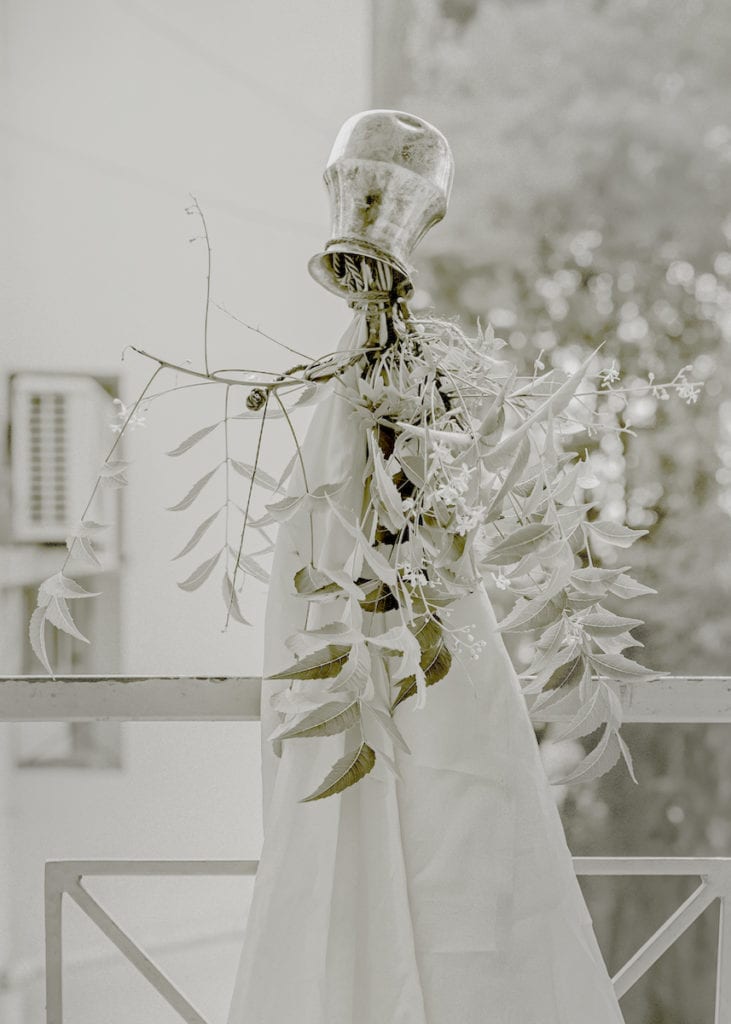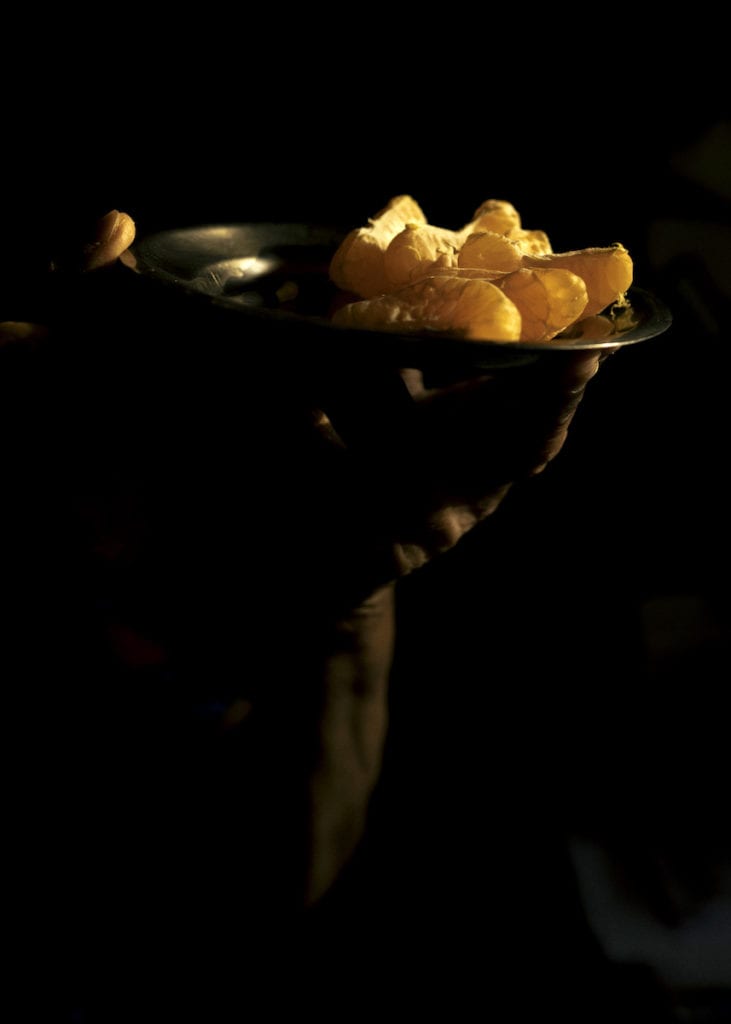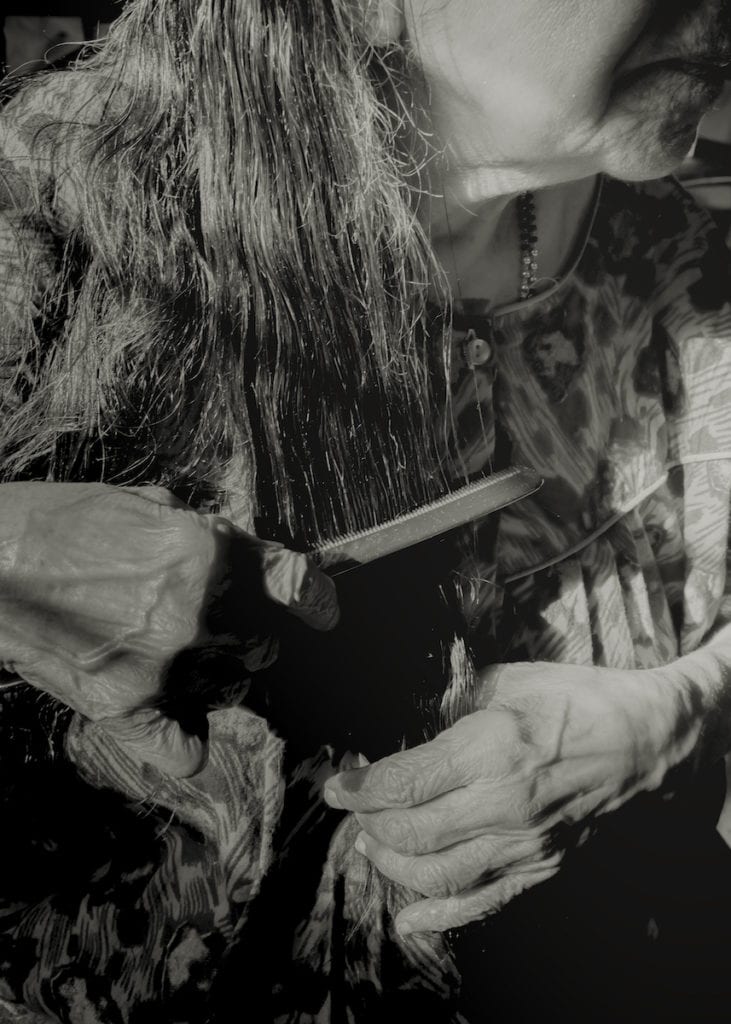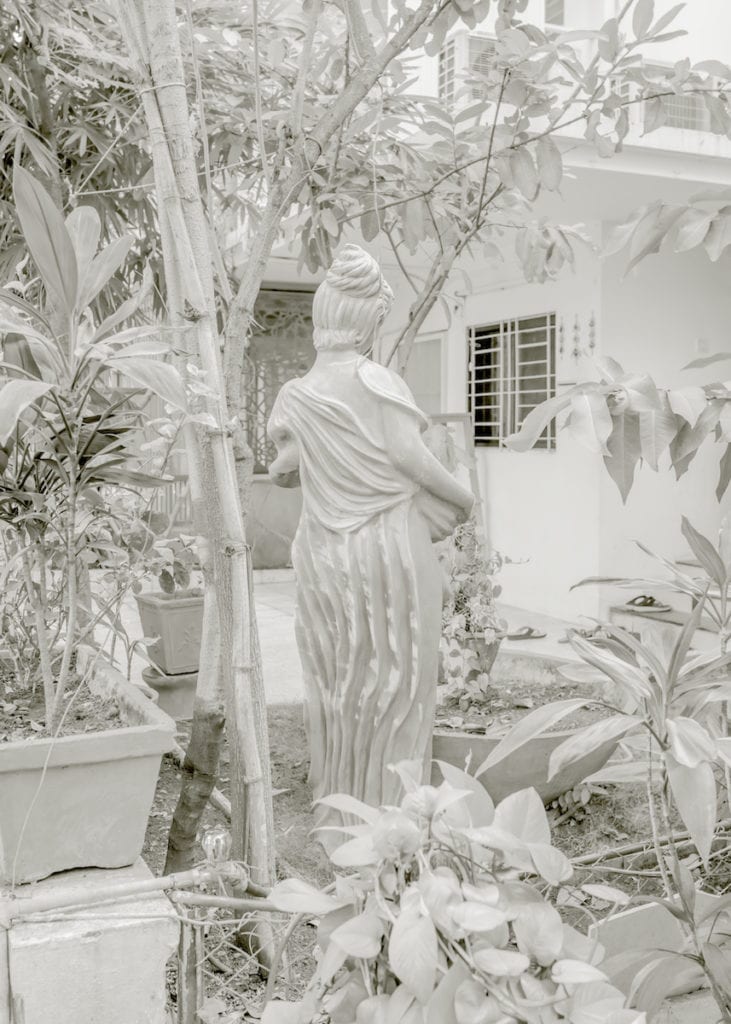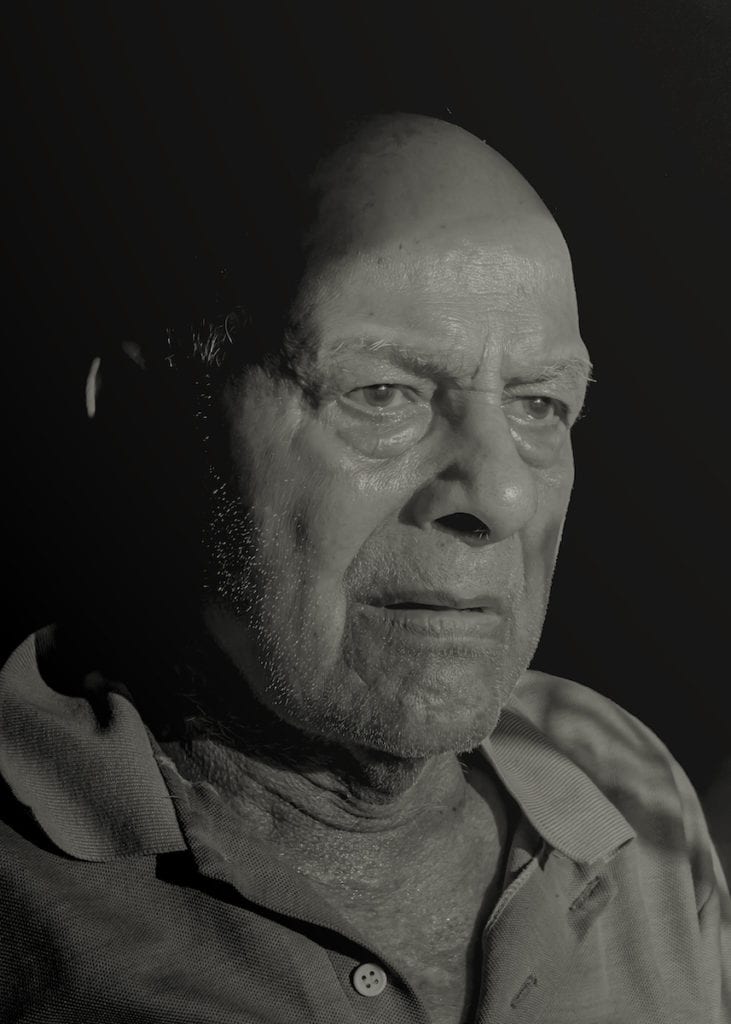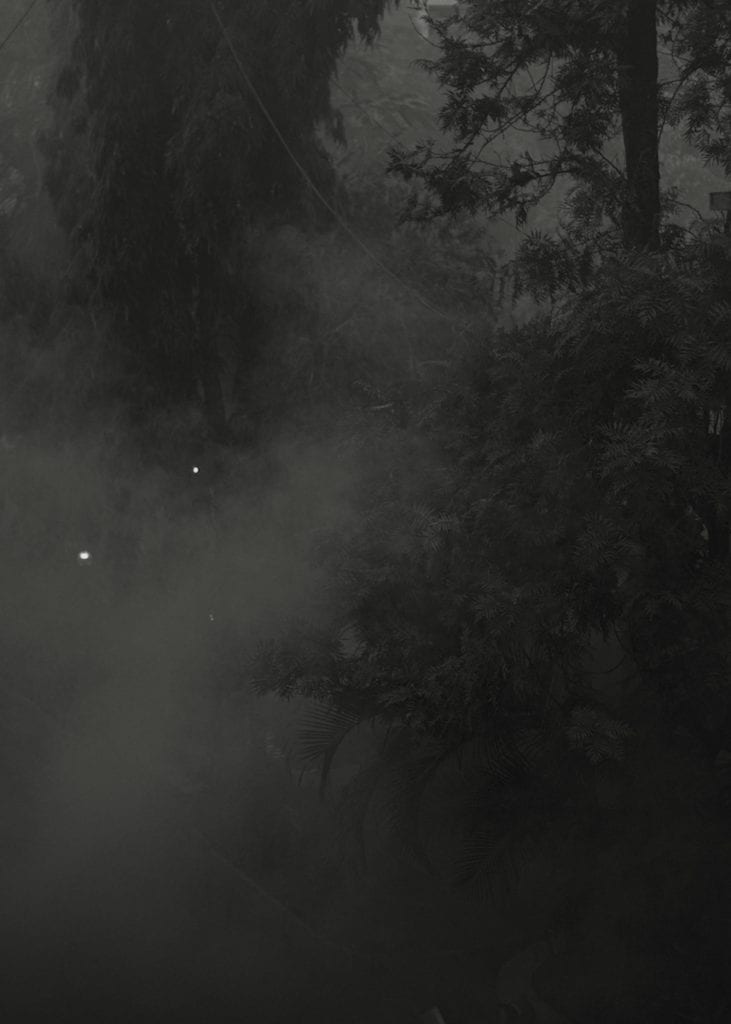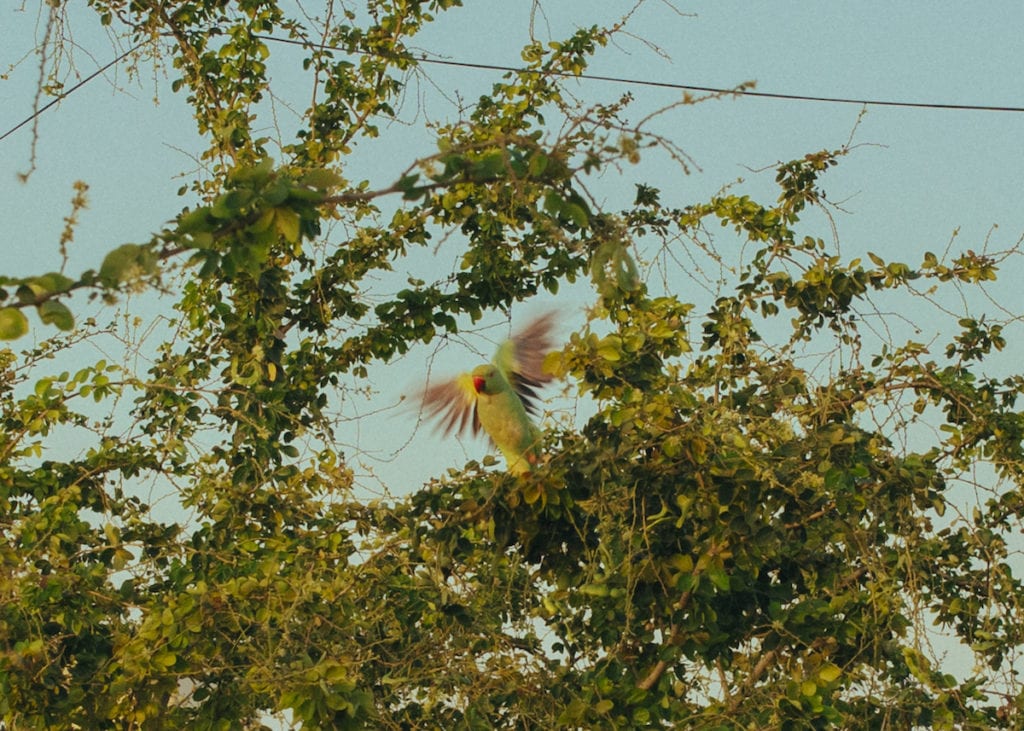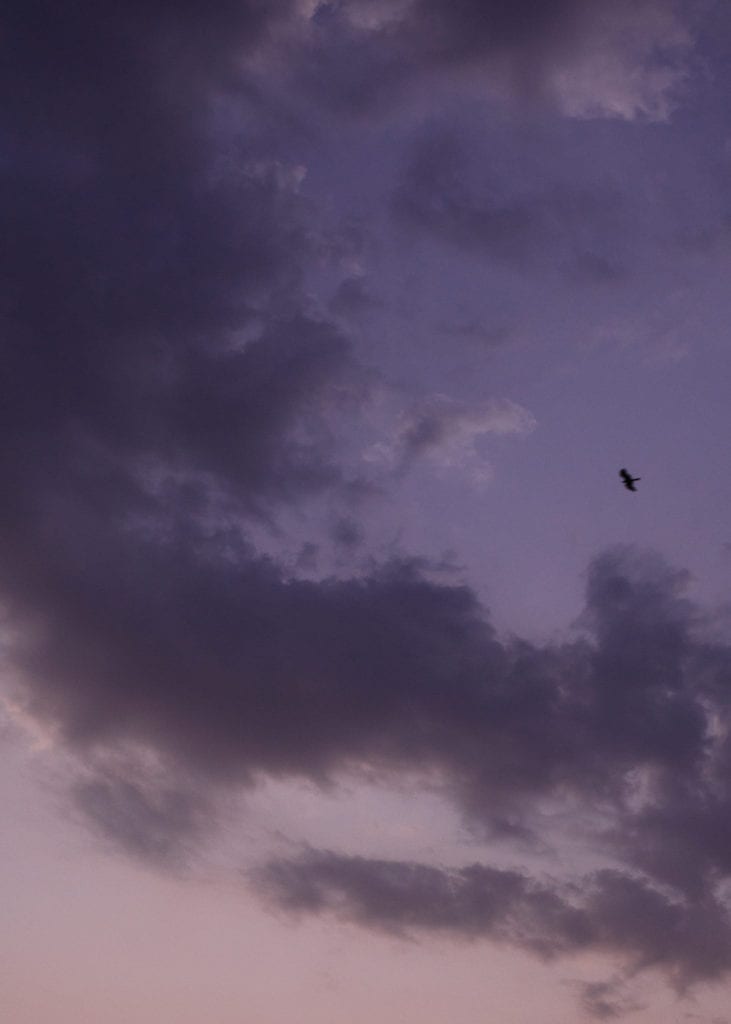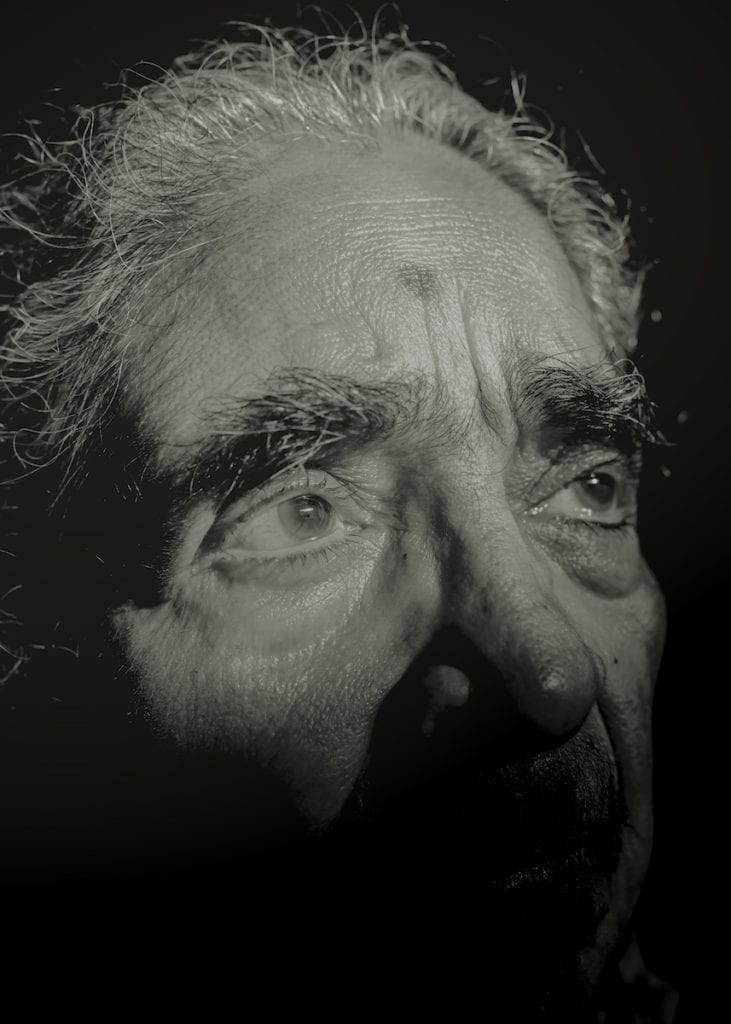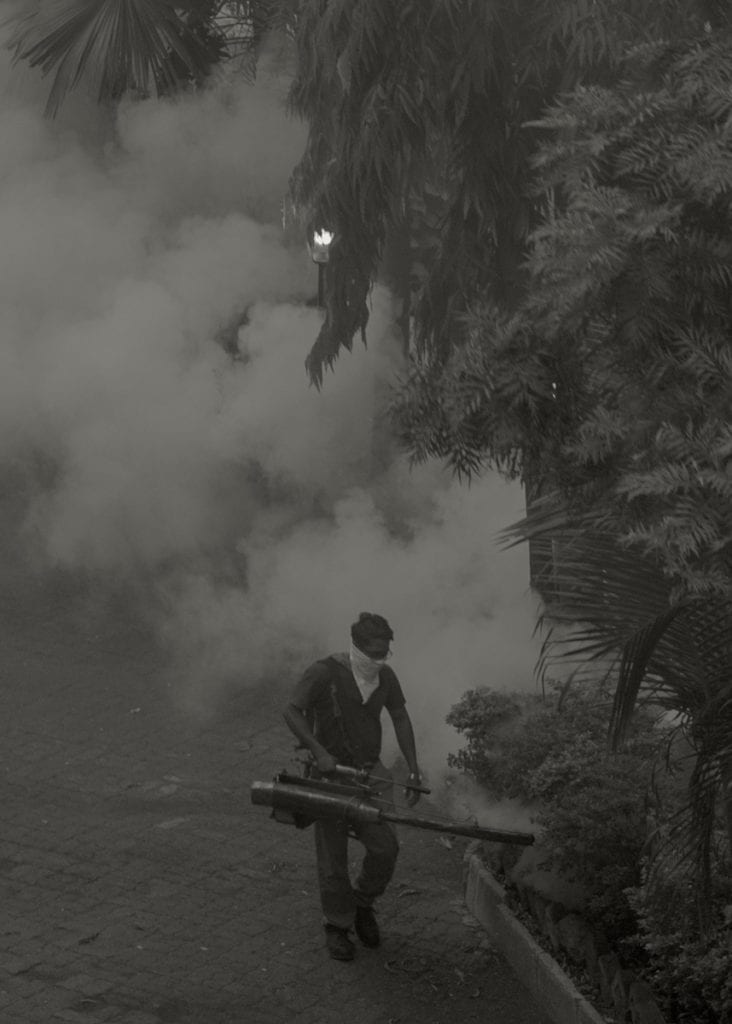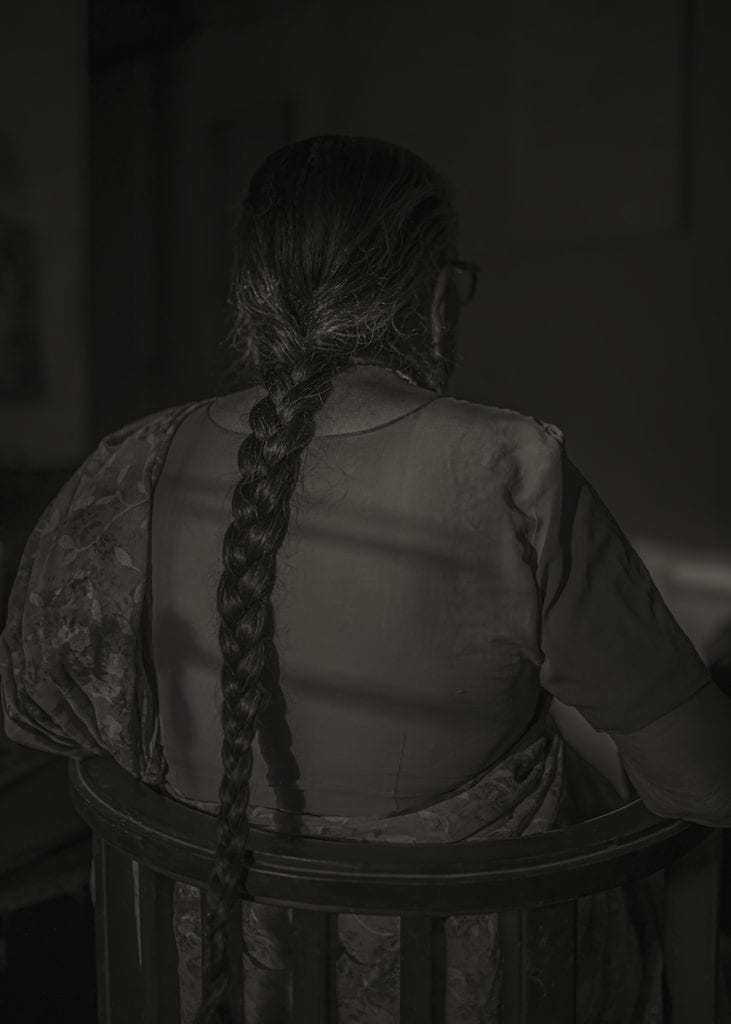Neha Hirve is unaccustomed to working from a single space. Obscure places, in far-flung corners of the world, compel her: shadowing storm chasers in rural America, navigating Auroville City’s sun-drenched plateau, observing the covert and solitary world of Hambacher Forest’s eco-anarchists. She spends time with her subjects, returning to them often.
It is, however, from within the confines of her grandparent’s house in Pune in western India that Hirve’s latest project evolved. In March, she moved from Stockholm back to her childhood home after almost a decade away. Soon after, prime minister Narendra Modi declared a 21-day strict lockdown in the wake of the Covid-19 pandemic, which was extended into June. “My homecoming would have been a lot more overwhelming in some senses if the pandemic had not taken place,” says Hirve, who returned for a job, which never materialised due to Covid-19. “I’d still be caught up in making plans. Now, I am living in a bubble; around a quarter of the country is unemployed, and it does not make sense to have plans anymore.”
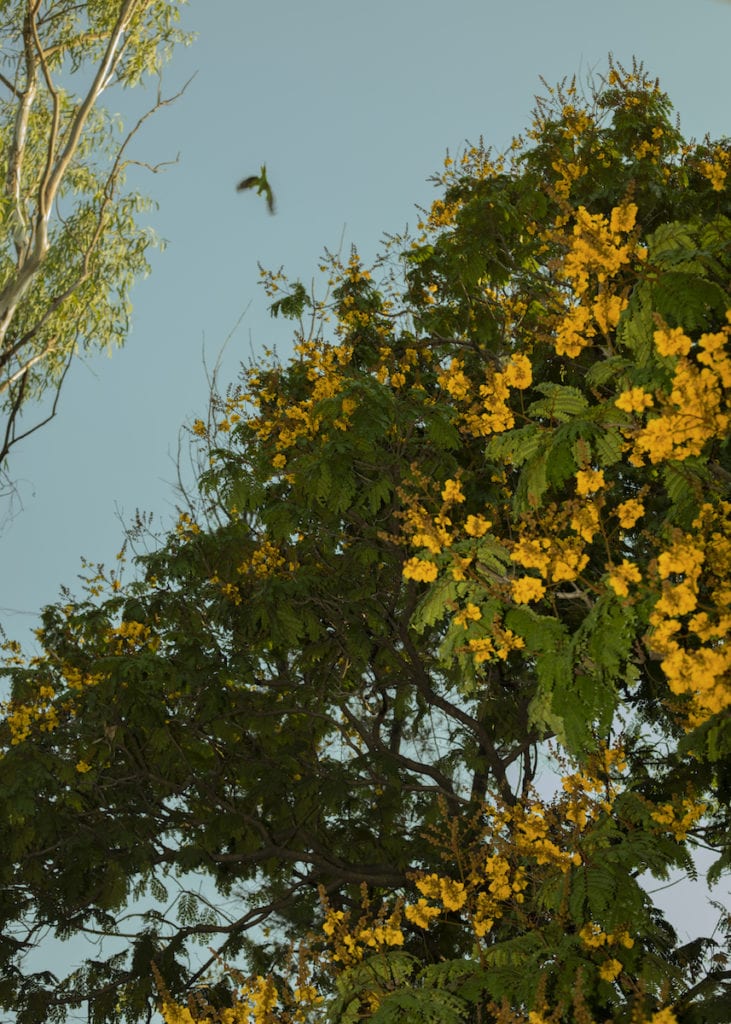
“I realised I was making the kind of pictures that I’d always wanted to make — less documentary, more interpretive”
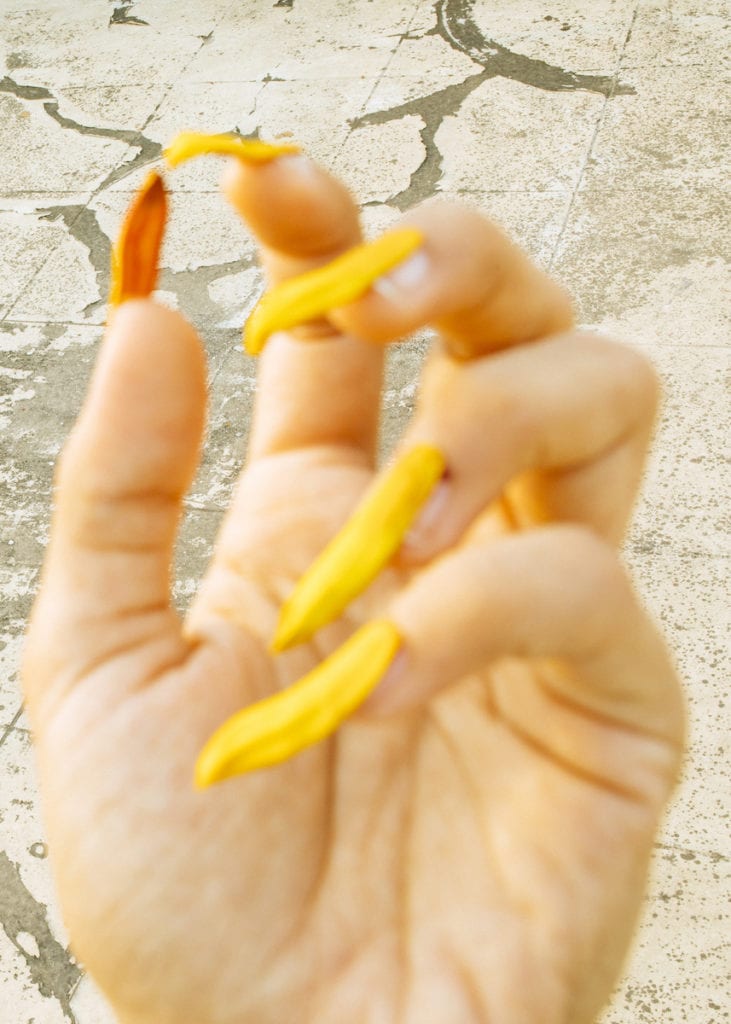
Hirve had planned to take a road trip to visit parts of India she had never explored before. Instead, she found herself confined to the gated community in which she grew up and where her 90-year-old grandparents still reside, enveloped in the stillness and silence of their lives, which was amplified by the solitude of government-enforced isolation. Turning to her camera for solace, Hirve began taking pictures with less direction: “I realised I was making the kind of pictures that I’d always wanted to make – less documentary, more interpretive.”
The resulting series, which is titled both your memories are birds, was not conceived as a response to the pandemic, but it became one. Hirve responds to the tumult of the current moment by retreating to the cosseted memories of her childhood, finding stability and grounding in recollections of her past. Birds are a central motif, their outstretched forms dappling the dusky sky above her grandparent’s rooftop — flying, soaring, and sweeping through her various photographic frames. The birds symbolise freedom, at a moment when physical freedom has gone, and also Hirve’s childhood, a childhood that is now lost: “India has changed in the past 10 years, both because it really has, and because I am seeing it with adult eyes.”
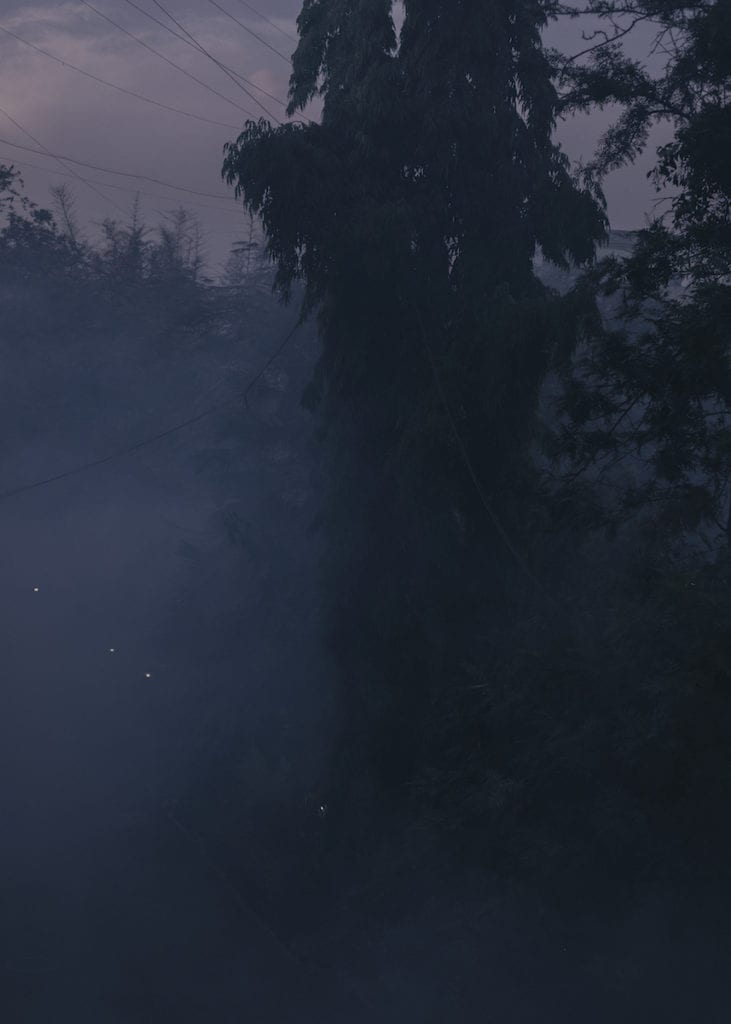
Amid images of birds, flowers and foliage are Hirve’s grandparents: her grandfather disguised beneath a World Health Organisation cap; her grandmother cast in the glow of a candle dancing through the dark; his face crinkles, hers turns away — a sinuous plait cascading down her back. “It has been hard and beautiful at once,” says Hirve of isolating with such vulnerable individuals; “they are older in ways I’d never thought about before”. Photography has enabled her to confront their mortality — she acknowledges it, but also records this unprecedented period of time they have spent together. “We want to protect the elderly from the virus because it feels like something we can control, but, the reality is that we are dealing with these anxieties all the time,” she reflects, “one day we will lose those we love and all that will remain are memories of a time, which we will re-colour as being somehow perfect.”
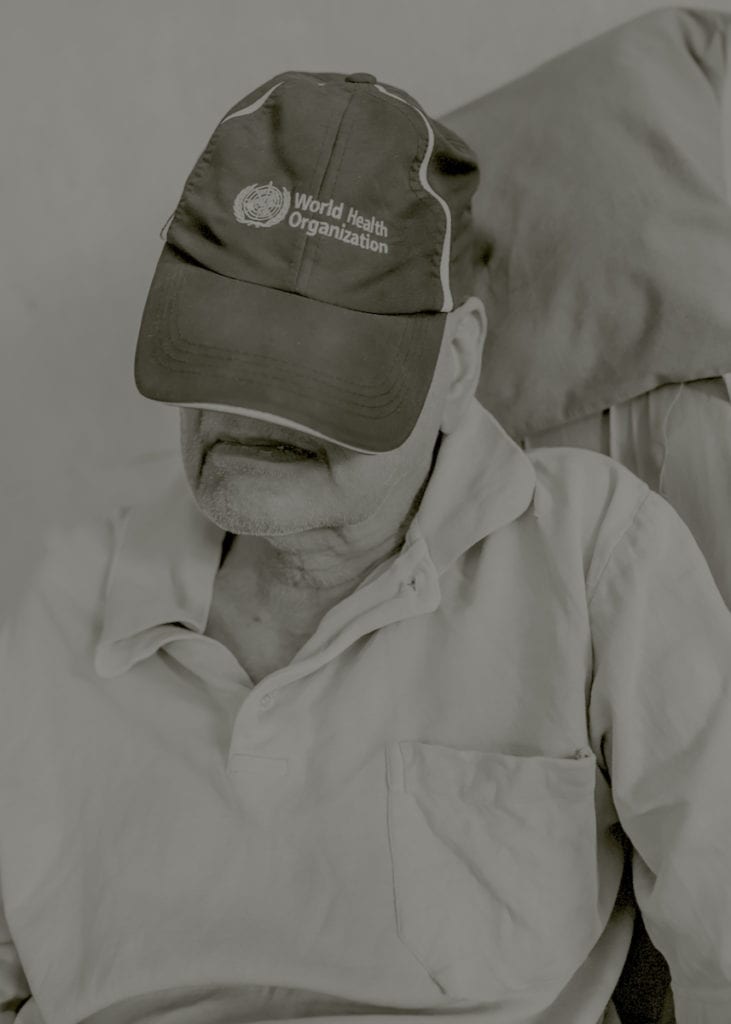
“It has been hard and beautiful at once, [they] are older in ways I’d never thought about before”
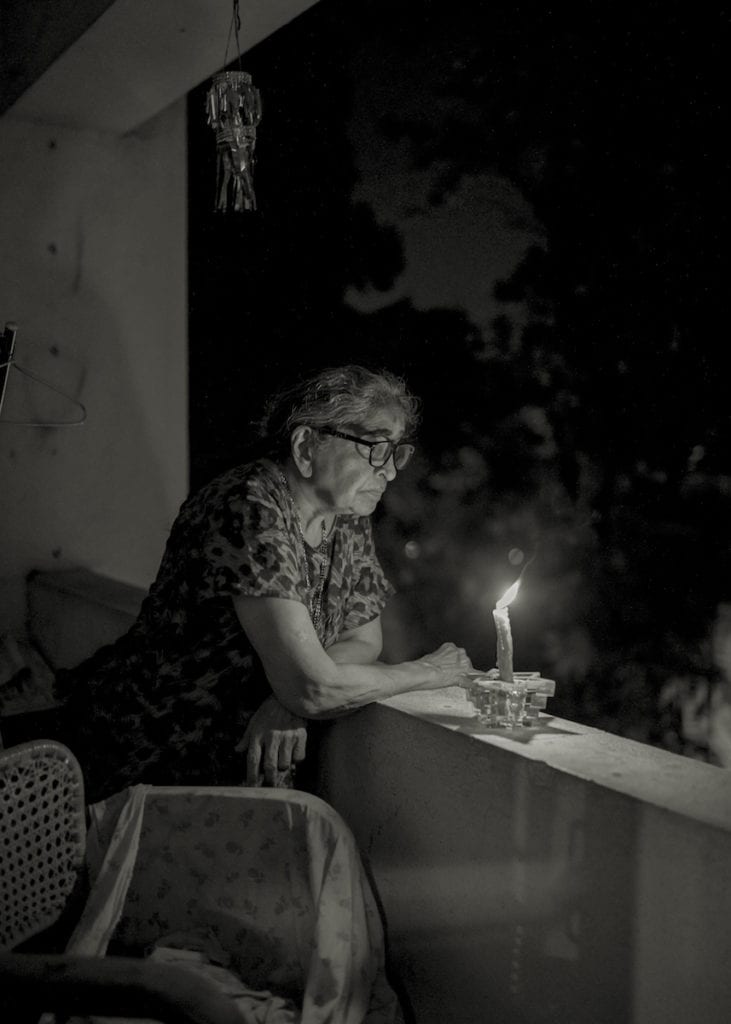
Beyond her grandparent’s gated community, political tensions and social unrest run high. “There is so much fake news and political propaganda circulating all the time,” says Hirve, “and especially now, it’s still hard for me to identify which media outlets are biased and how, and which ones are censored — who has an agenda and who doesn’t. It’s frustratingly hard to convince my grandparents what to believe and what not to.” Despite the country locking down early and severely, India is now the fourth worst-affected country globally. The economy was in a precarious state before the pandemic, which has further shaken it. Unemployment has almost doubled to 14.5 percent according to data compiled by the Centre for Monitoring Indian Economy (CMIE), a Mumbai based private think-tank. The lockdown sparked an exodus of millions of migrant workers who were previously employed in industries in the urban centres, to their home-villages, with many becoming stranded en route, suffering from starvation and in some cases death.
Hirve’s images absorb the unease, but, despite the circumstances, a lightness and poeticism run through them. Straddling black-and-white and colour, the photographs exude a certain vitality: moments of colour and life amid the vacuousness of isolation. “When I first learnt to take pictures as a child, in this same house, the birds are what I was drawn to,” says Hirve. “Later I ‘outgrew’ nature photography and dismissed it as uninteresting for a long time. Now, the birds and flowers are all I notice when I look out the windows.”
